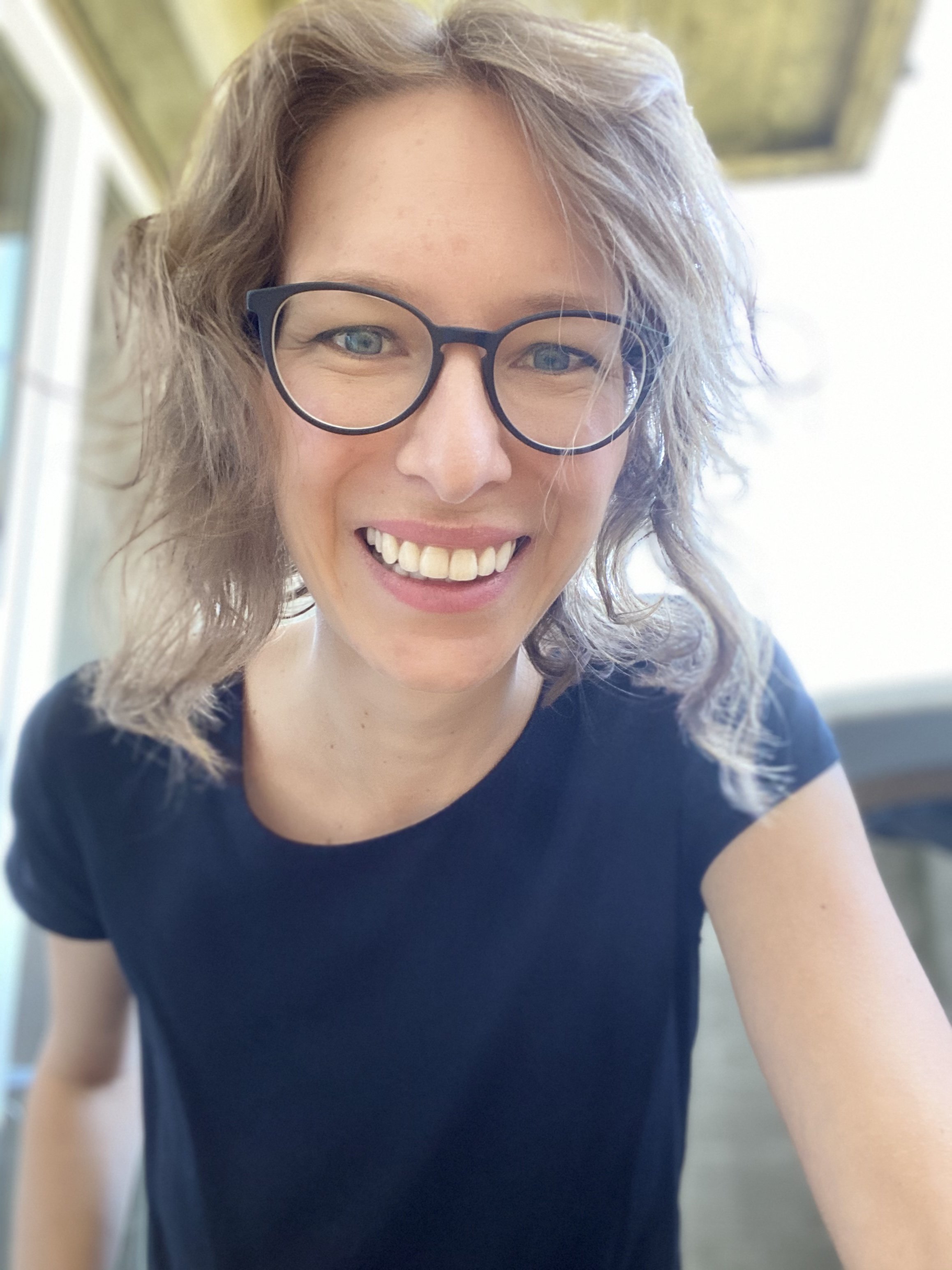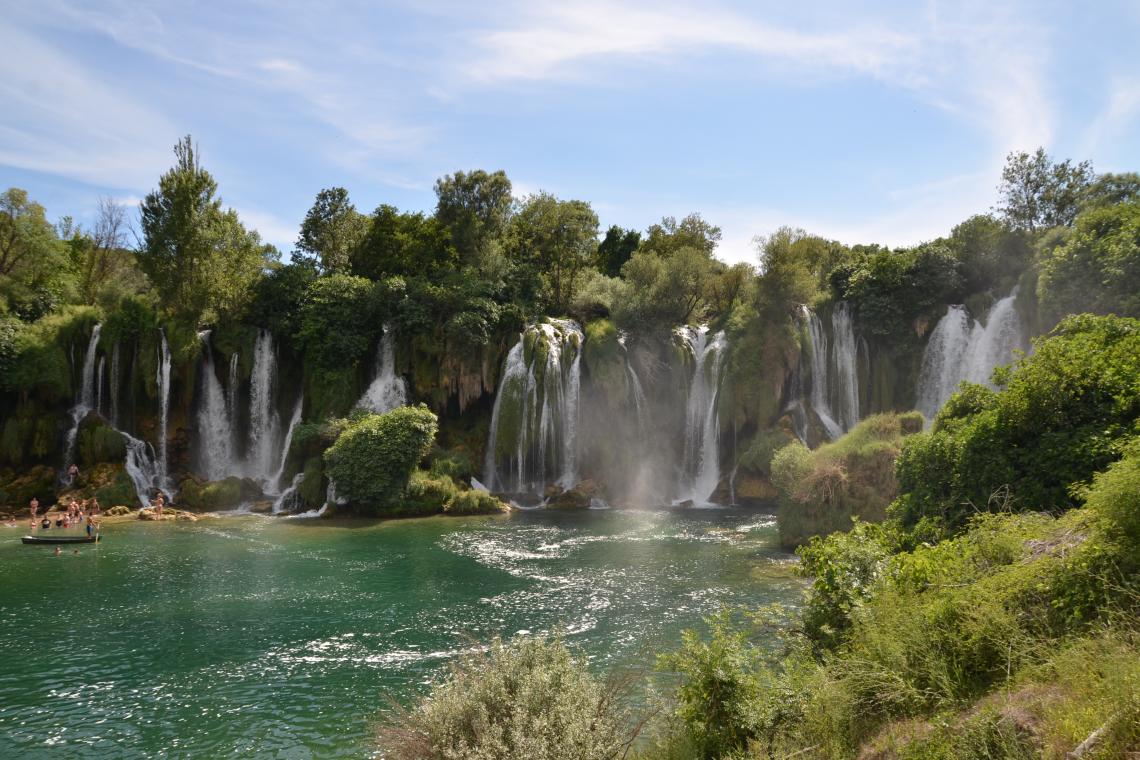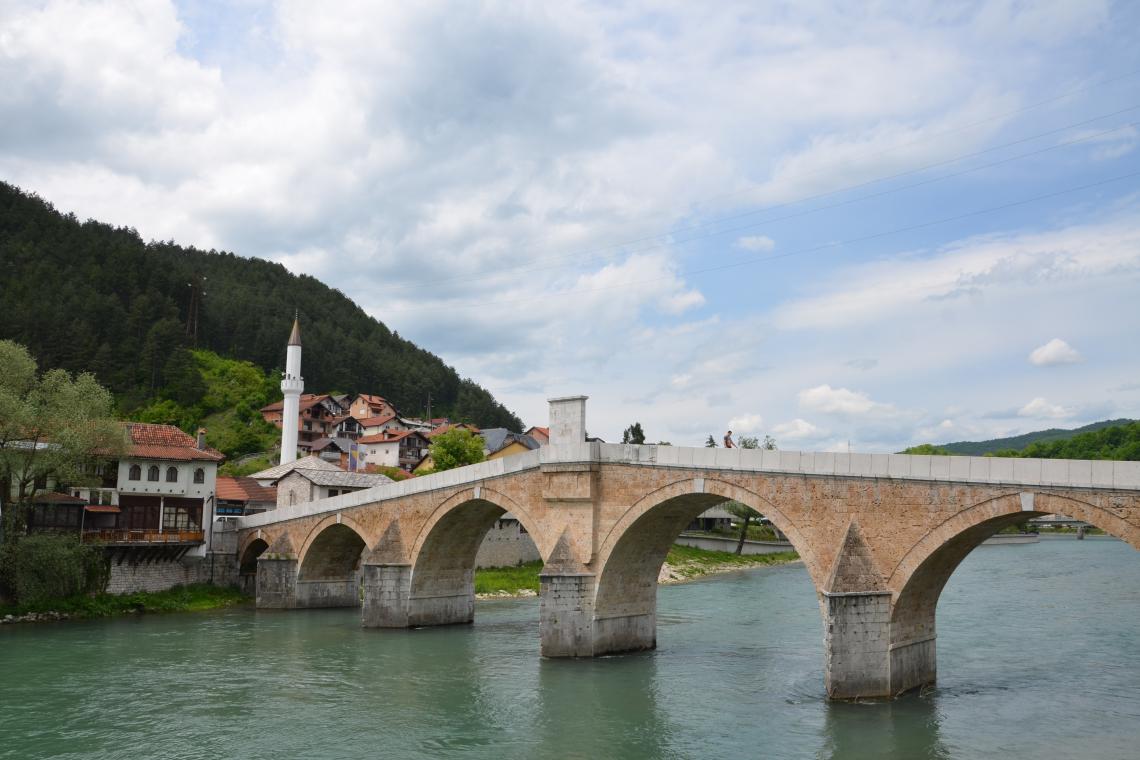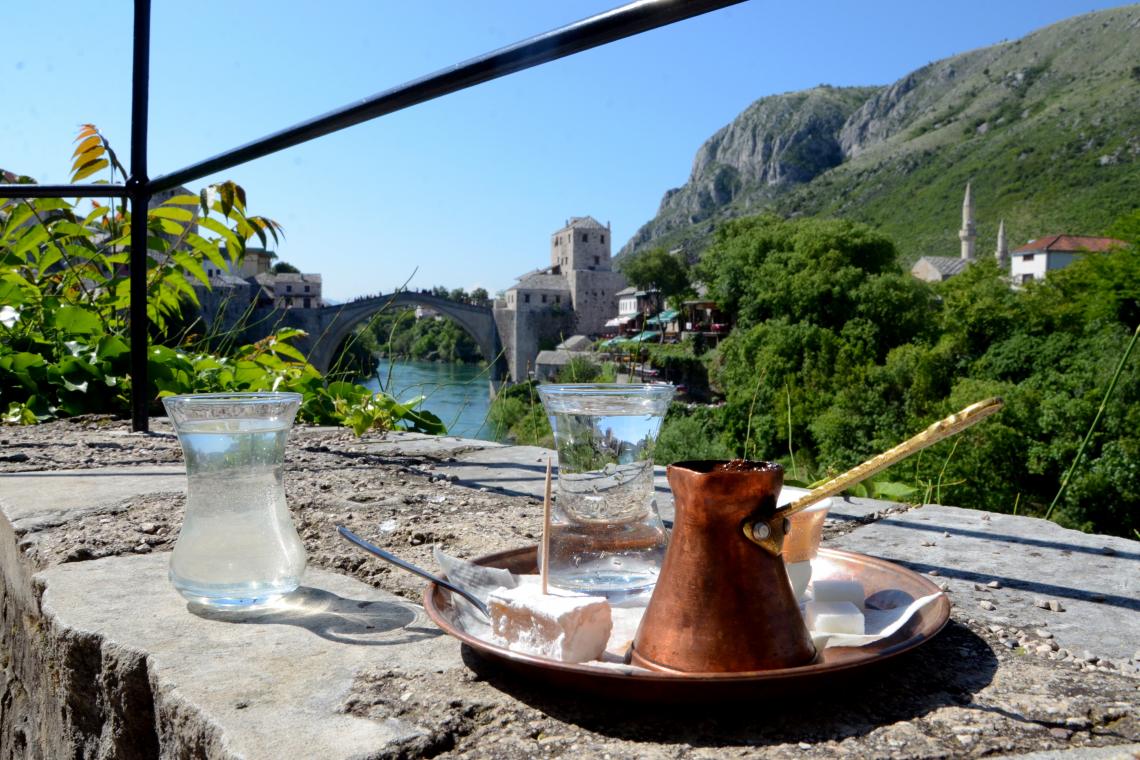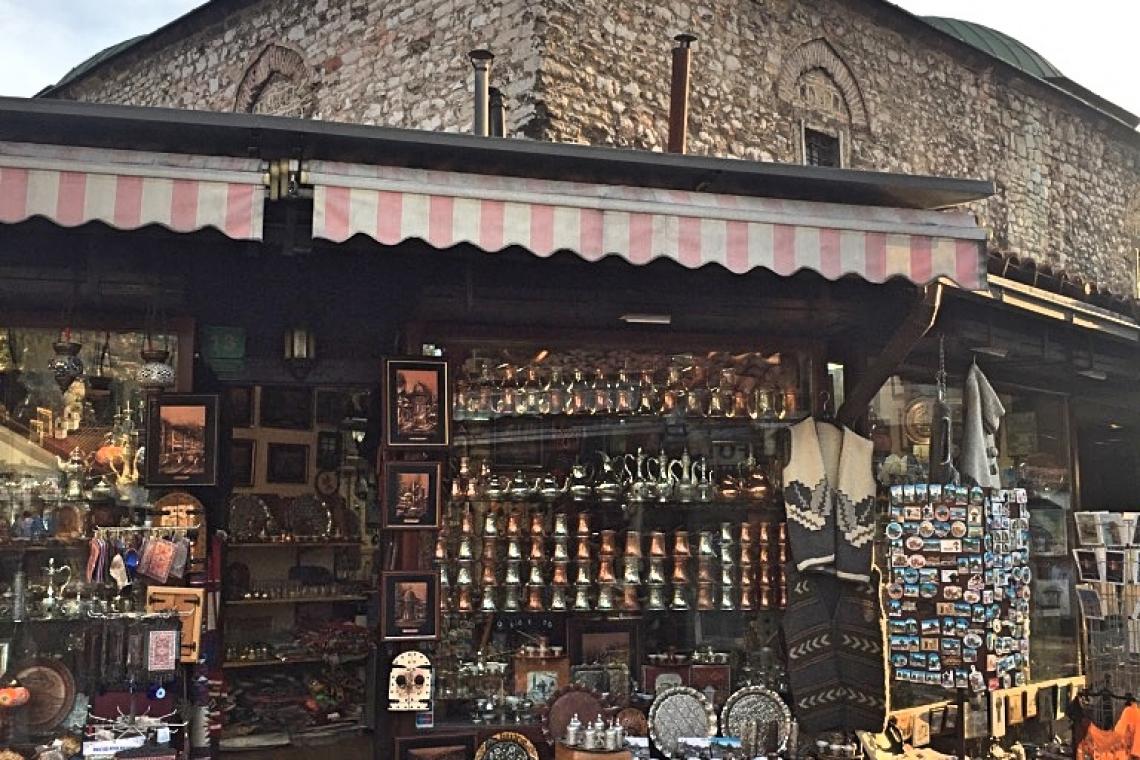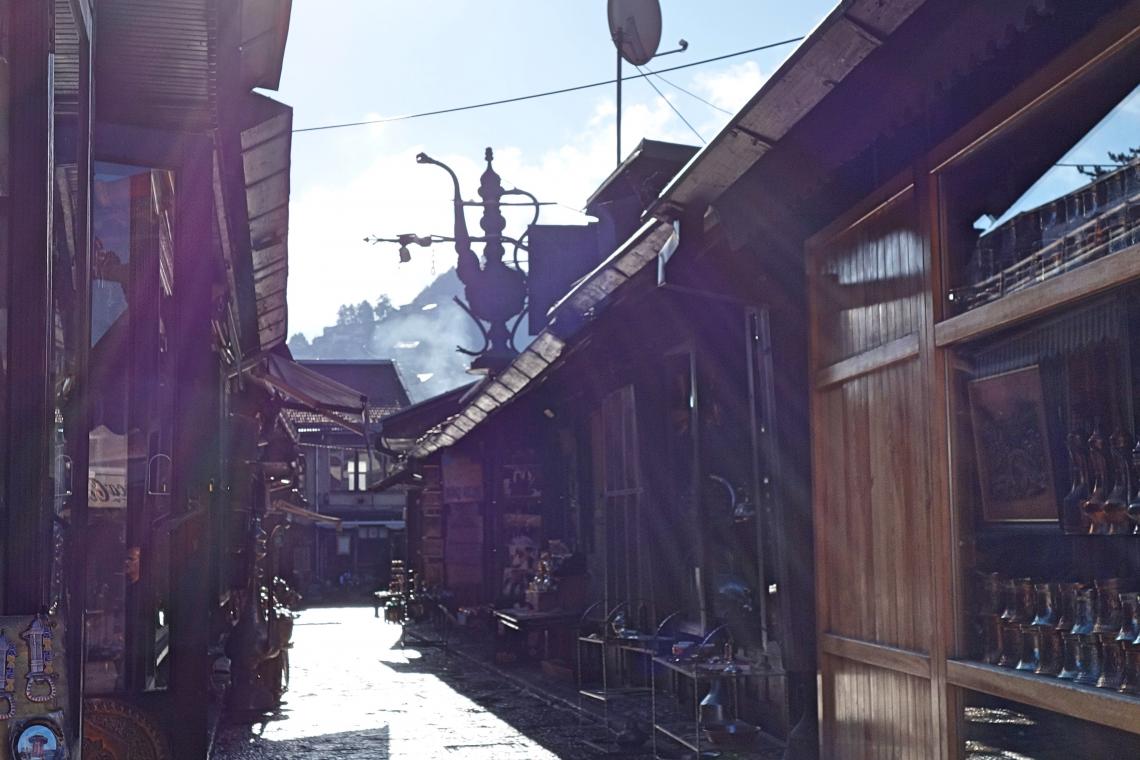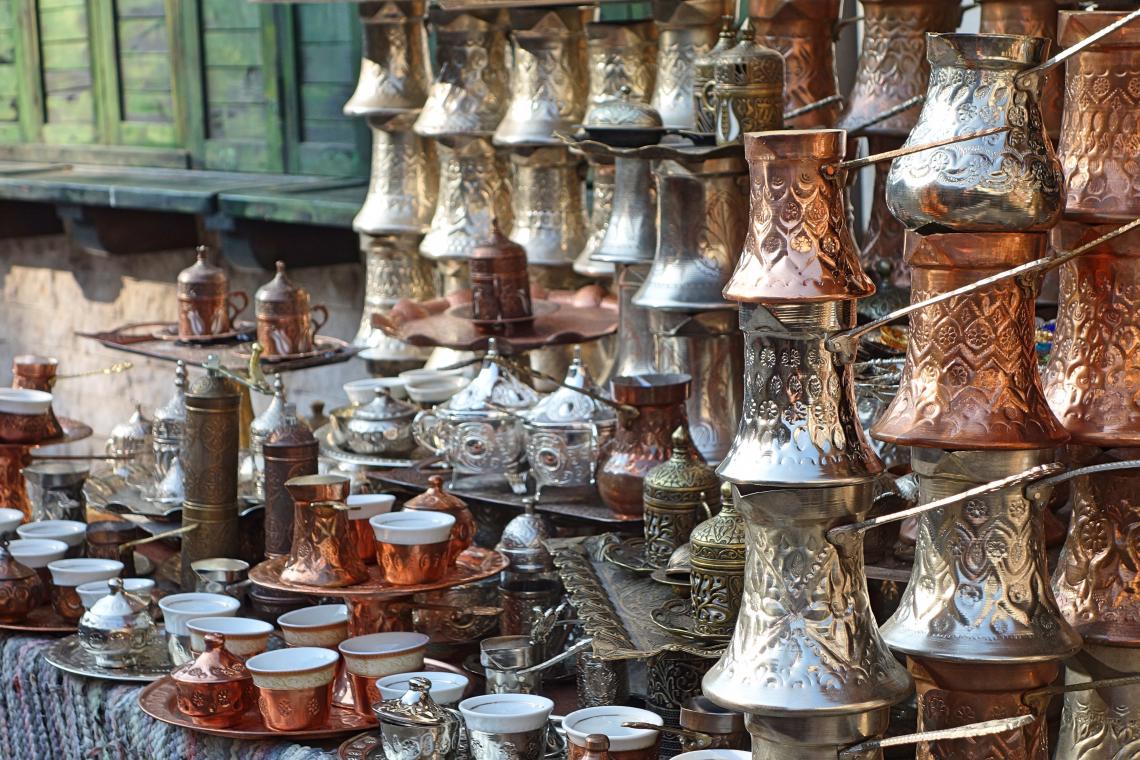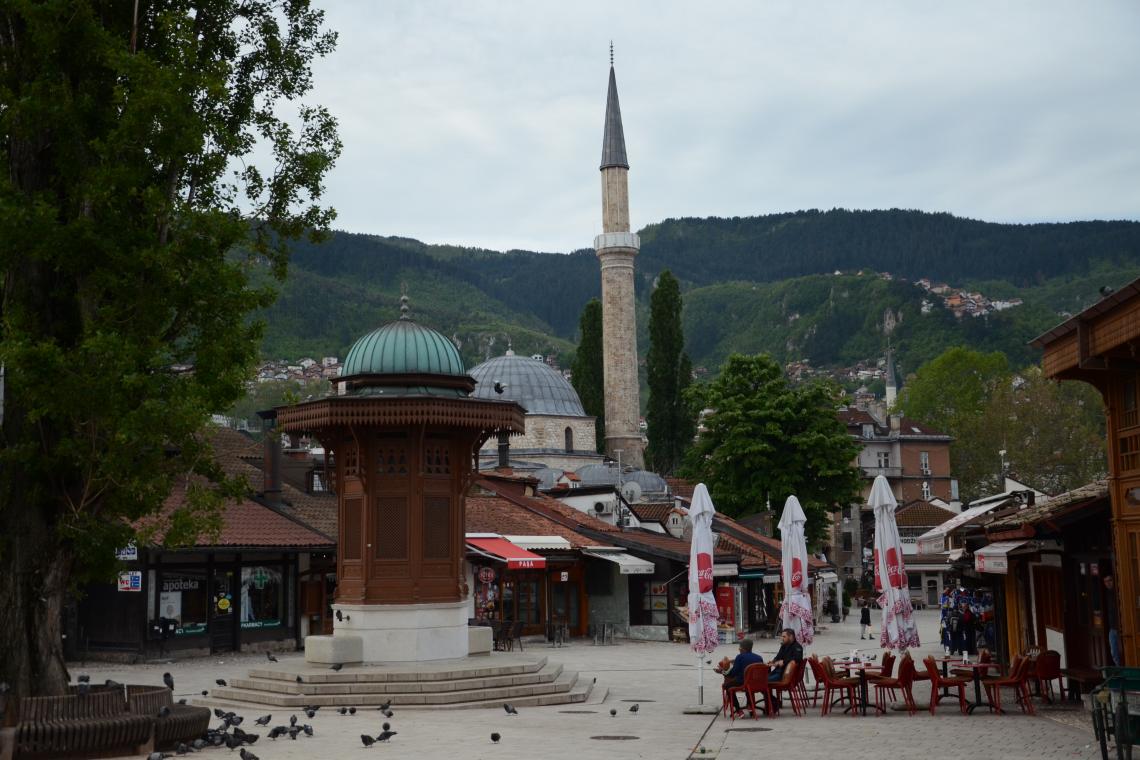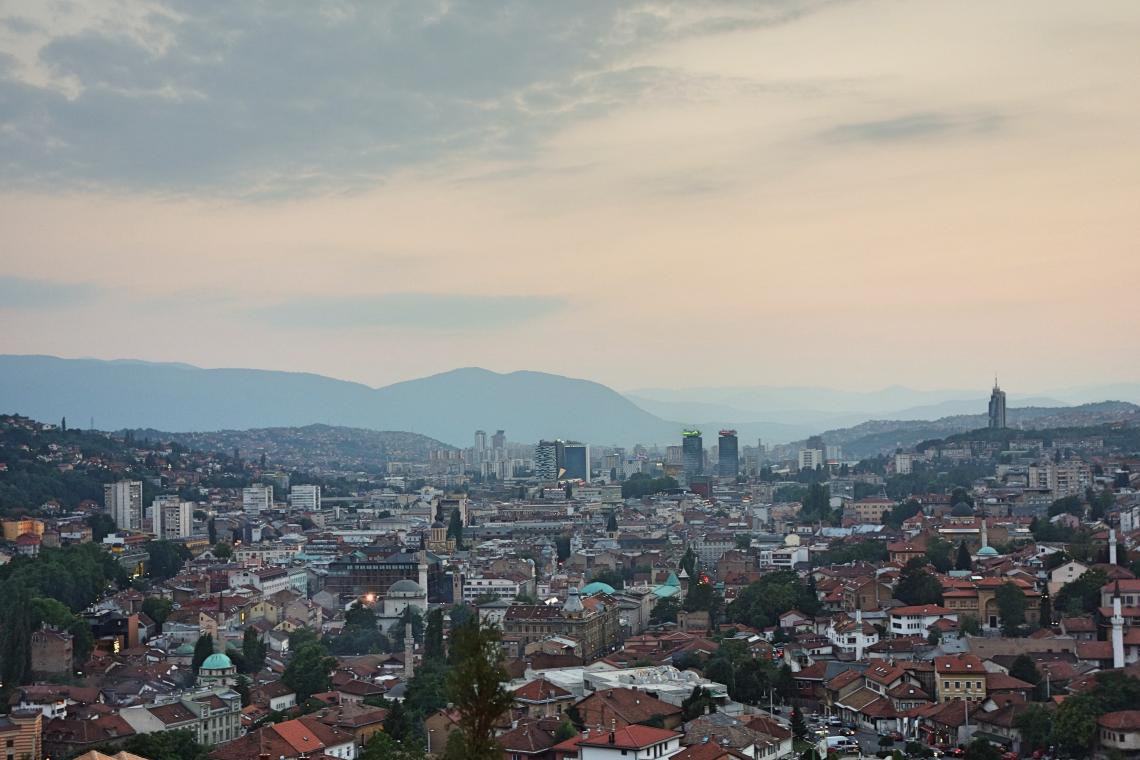The Swiss in Bosnia and Herzegovina - Aleksandra Hiltmann
When was the first time you met someone from Bosnia and Herzegovina? When/ how/ where was your first encounter with people from Bosnia and Herzegovina?
A friend of our family, whom I knew since my childhood, a croatian lady. Years later I learned that she was actually from Bosnia. Also in primary school we had children who came from the Ex-Yugoslav countries, they just arrived from the homes they had to leave due to war. That was the nineties. Back then I didn’t fully understand where they really came from and what had happened there.
First visit and first impression of Bosnia and Herzegovina?
I remember my first minutes in Bosnia and Herzegovina very well. The bus crossed the border from Croatia into Bosnia - my first stop would be Jajce. The road was narrow and curvy, framed by overhanging rocks, on the left side, there was a beautiful turquise river, next to it incredibly green grass, scattered small villages. The scenery even reminded me a bit of Switzerland. Yet, within these first couple of minutes I suddenly felt like I couldn’t breathe. I travelled there to conduct interviews for my master thesis. I thought I was well prepared. For months I studied numbers, population shifts, events during the war. But when the bus passed along all these destroyed houses, I instantly realized that I knew nothing. This moment and the following post-conflict research was one of the most important lessons I’ve learnt during all my study years, basically my life. News and science is not just theories and numbers. It’s people. I knew it, but now I felt it very harshly. Later of course I did other things than conflict-related research - incredibly beautiful corners of the country, this time breathtaking landscapes, national parks, more rivers - nature is absolutely stunning. I discovered city life in Sarajevo, arts, culture, other old towns, socialist architecture which I am very excited about. And I met wonderful people. I know it may sound stereotypical, but the hospitality of Bosnians is indeed moving.
As an outsider, in your opinion what is the biggest disadvantage of life in Bosnia and Herzegovina?
It’s hard to tell what the advantages are when it’s not me who has to live there. I spent enough time in the Balkans to know how comfortable my life in Switzerland is, even when itcomes to the most basic things as heating, electricity, roads. Also education, health care, services for citizens. Corruption and clientelism that captures so many aspects of life in Bosnia and Herzegovina as well as in the neighboring countries is devastating to future developments of whatever kind. I hear many young people who are frustrated, because, despite a degree, they are not able to find a job, either because there are no jobs or because they don’t have the right connections or are being associated with the “wrong” group or party. At the same time, everyone can obviously see that there is a class of people that feels no shame in filling their own pockets. Related to pervasive corruption are the processes of dealing with the past. There cannot be justice and reconciliation if those who did wrong can escape the courts - because they have their ways and a whole system that covers for them. And dealing with the past, in my opinion, matters, in the sense that many people would need some kind of closure and inner peace to be able to move on - and to raise their children in an environment that is not intoxicated by nationalism. Also, as a woman, I must say that I strongly cherish my freedom in the place I live now. I hear from female and also queer friends how they struggle with patriarchal structures and sexism in an extent that for nowadays I find hard to accept.
And the biggest advantage?
People’s social ties among each other are strong, from a lot of young people I feel an incredible energy and creativity. It feels like Bosnia and Herzegovina is a place where for some things, you can be the first to do them, where you can play a pioneering role and really change something. I think that sometimes our Swiss society has been so spoiled, that they lost this adventurous, socially engaged spirit and got bored by ourselves, instead of chasing maybe at first crazy sounding ideas or simply our dreams.
What was your most impactful experience?
As I mentioned above, this first research trip, which I did on my own, was something that never left me ever since. I carry the stories of the people I interviewed, who told me what they needed to feel at home again in places where it seemed that humanity and the world had ended in the nineties. Besides jobs, it was rebuilding ties with other people, trying to create trust again. They weren’t people who told me their personal stories, they were experts. But as a matter of fact, all experts had personal experiences in this regard. I can still hear them talking, I remember single lines of what they said. And I really mean it when I say that I am grateful that they agreed to give their time for a thing like a master thesis - which for me is so much more until today, that still influences how I see my environment, that still influences my work. I visited Bosnia and Herzegovina many times more after this first trip and I met more people who do incredible things, who do something for their fellow people, their community, for peace, in the end. I don’t want to make it seem like this country is entirely made up of conflict and the past. It was just my first approach that stuck with me, because many people keep teaching me a lot in this field. And it is also an angle where I feel we need more awareness for in Switzerland in order to understand the current situation the country is in and why still people want to leave and eventually come to our country.
Where do you see the opportunities for cooperation between Bosnia and Herzegovina and Switzerland based on your experience?
I moved around Bosnia and Herzegovina within the NGO field - a great field for cooperation in terms of joint projects of various kinds. One other side, great opportunity is certainly tourism. There are so many things to discover in Bosnia and Herzegovina. The country is geographically close to Switzerland and there are many different branches of tourism that people can focus on - and already do. River rafting adventures, hiking tours through amazing national parks, historical city tours, wine tastings in vineyards, bike tours, architecture ranging from Ottoman to Socialism, great cuisine. And also a lot to learn about the recent past, conveyed in brilliant museums such as the War Childhood Museum for instance.
There are many things Swiss people like and are interested in that can be found in Bosnia and Herzegovina. It’s just that often they don’t know about it or don’t consider Bosnia and Herzegovina as a country where they could travel to as tourists. Only in recent years, I observed that trips and also organized tours to the Balkans are becoming more and more popular, not only among young people. And I haven’t heard from a single Swiss person that they were deceived. “I really want to go there again”, “I will tell all my friends about it” is usually the tone once they came back from their trip. So I guess there is much more potential in all the Swiss as potential tourists.
What is your message for Bosnia and Herzegovina people in Switzerland?
Do something with your background. Use it to create ties among the two countries, be it on a private level - take your neighbor on a trip to Bosnia to show him around. Because then he will tell his friends, how nice and interesting it was and so on. Or start a business. You understand both culture, speak both languages. There are already businesses that cooperate, be it for furniture, textiles, designer couture, even uniforms for our biggest train company’s staff are being sewed in Bosnia. Translation services, call centers, IT, graphic design, fashion. There are so many possible ways of cooperating, thanks to the Internet also without travelling all the time. See your country of origin as more than the place you go back to every summer and where you send money all year around. This is not meant in a disrespectful way. (My mother used to send a lot of things to our relatives in Poland…). I mean it in a way to make use of a resource that you got by being a Bosnian in Switzerland. And also talk more about your background to Swiss people, educate them. Knowledge about the Balkans is still limited here, despite us living with you for so many years in one country. Share your stories. They can open new worlds to other people and can really make them think - and hopefully also act. Be it changing their attitudes for the better, supporting projects or cooperating with businesses in Bosnia and Herzegovina, or simply visiting the place as tourists. And please, for whomever God’s sake, teach them to be more spontaneous - no more coffees on appointments made three weeks in advance.
Pictures provided by: Aleksandra Hiltmann, Zurich, Switzerland
Interviewed by: Aldin Vrškić, Zenica, Bosnia and Herzegovina
Edited by: Tomislav Tadić, Tuzla, Bosnia and Herzegovina

